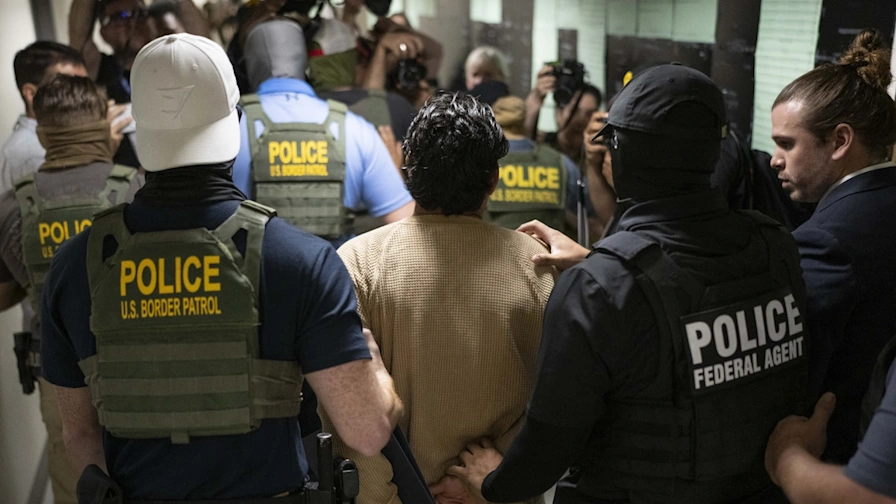When Ph.D. student Job Garcia began filming an ICE raid outside a Home Depot in Hollywood Park on June 19, his phone became a first‑hand record of government action. But instead of protection, he got tackled—and detained. In this article, we’ll unpack what happened, what it means for constitutional rights, and why Garcia is now demanding $1 million.

U.S. Citizen Demands $1M After Shocking Arrest
| Takeaway | Data/stat |
|---|---|
| Wrongful detention hours | Held for more than 24 hours, despite being a U.S. citizen |
| Legal claim value | MALDEF submitted a $1 million claim under the FTCA |
| Public outrage | Video of the incident went viral, fueling calls for accountability |
Job Garcia’s arrest reflects chilling intersections between immigration enforcement and free speech. The FTCA claim now casts this incident as more than a flashpoint—it’s a test of how far constitutional protections stretch when government agents prioritize quotas.
Background: What happened on June 19
On June 19, Border Patrol and ICE agents conducted a raid in the Home Depot parking lot. Garcia, 37, a Claremont Graduate University doctoral candidate, noticed agents breaking a truck window and began recording. Despite staying back, he was tackled, restrained (with agents kneeling on his back and neck), handcuffed, had his phone confiscated—and taken into custody in a federal SUV, then to Dodger Stadium and finally detained over 24 hours—despite showing proof of citizenship.
I’ve seen plenty of protests escalate, but something about federal agents arresting someone filming from a distance—without warning—felt deeply unsettling. It hits at the heart of First and Fourth Amendment protections.
Legal claim and demands
Represented by the Mexican American Legal Defense and Educational Fund (MALDEF), Garcia has filed a $1 million claim under the Federal Tort Claims Act (FTCA). It alleges:
- Assault & battery
- False arrest and imprisonment
- Violation of First, Fourth, and Fifth Amendment rights
MALDEF asserts the arrest was racially motivated and retaliatory, violating free speech, due process, and protection against unreasonable seizures . A final lawsuit will follow unless ICE and Border Patrol address the claim.

Broader context: part of a wider trend
This incident isn’t isolated. Civil‑rights groups, including the ACLU and Public Counsel, have filed suits accusing federal immigration authorities of unconstitutional, “military‑style” raids targeting Latinos, U.S. citizens included. Reports describe warrantless detentions in Home Depot lots, swap meets, car washes—and “dungeon‑like” ICE holding facilities.
These nationwide operations are in line with a directive aiming for 3,000 arrests per day, fueling concerns of racial profiling and mass arrests.
What are Garcia’s grounds—and what comes next?
- Constitutional rights
- Fourth Amendment: protection against unreasonable seizures
- First Amendment: right to record public officials
- Fifth Amendment: due process rights
- Process
An FTCA notice has been filed; a formal lawsuit may follow unless the federal government offers fair settlement or dismisses the allegations. - Public pressure
The viral footage has galvanized legal and advocacy communities, prompting further legal action against ICE nationwide.
Why it matters
- Civil‑liberties ramifications: If upheld, Garcia’s case could reinforce the right to record federal agents and limit warrantless arrests.
- Government accountability: A settlement—or ruling—may compel ICE and Border Patrol to reassess raid protocols, especially around bystanders.
- Precedent for U.S. citizens: Highlighting that even U.S. citizens can be swept into immigration enforcement raises concerns about civil‑rights protections slipping.
What ICE says
So far, neither ICE nor Customs and Border Protection has officially commented on Garcia’s specific arrest. The Department of Homeland Security has broadly defended its operations as “highly targeted” and “non‑discriminatory,” rejecting claims based on race or constitutionality.
FAQs
How long was Garcia detained?
More than 24 hours—taken from Home Depot to Dodger Stadium, then to the Federal MDC in downtown LA—before he was released without arraignment.
Did he have a warrant?
No warrant was shown, nor was any legal basis articulated before his arrest while filming.
What is MALDEF seeking?
An initial administrative claim for $1 million in damages, followed by a potential federal lawsuit unless resolved.






